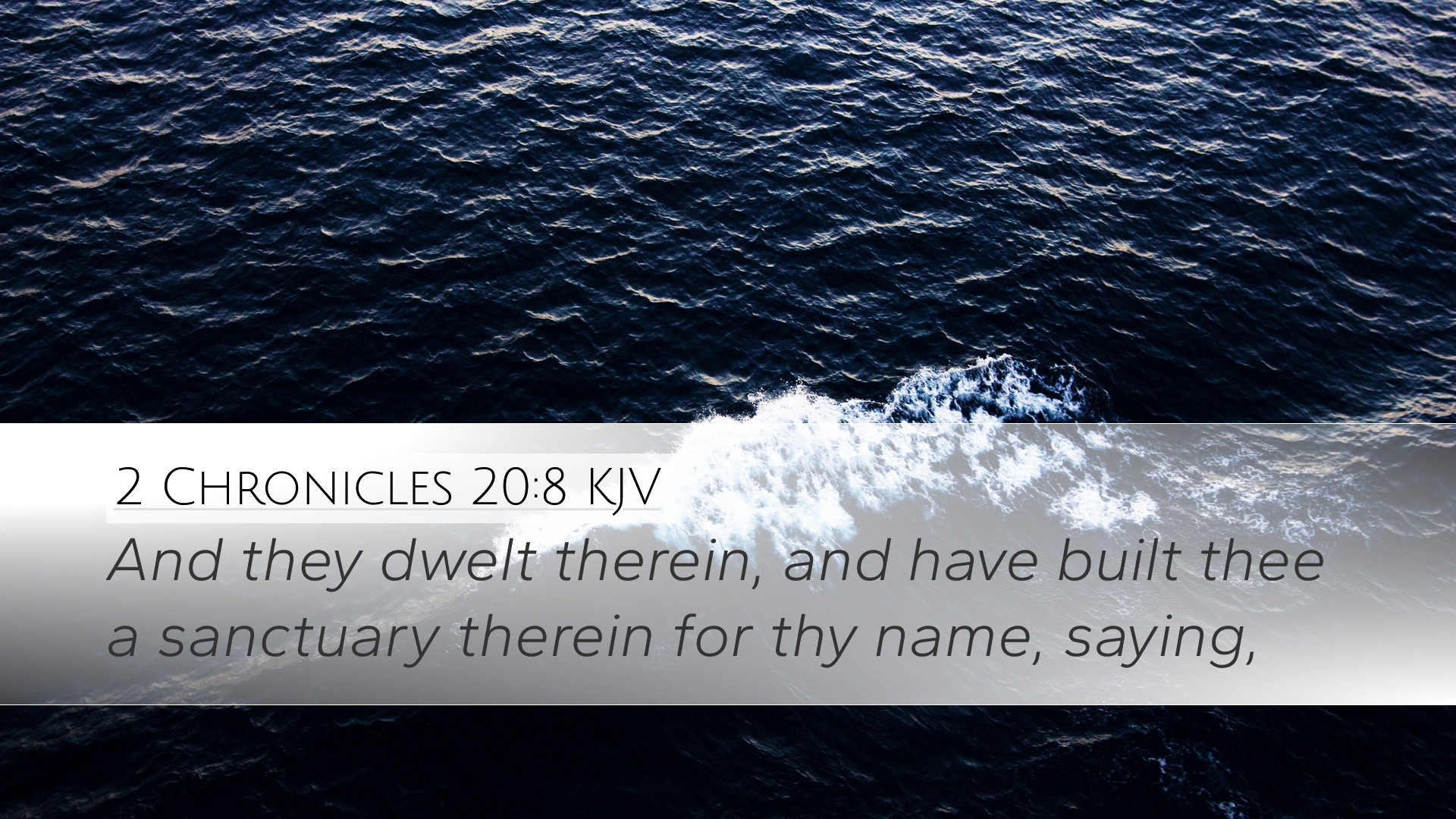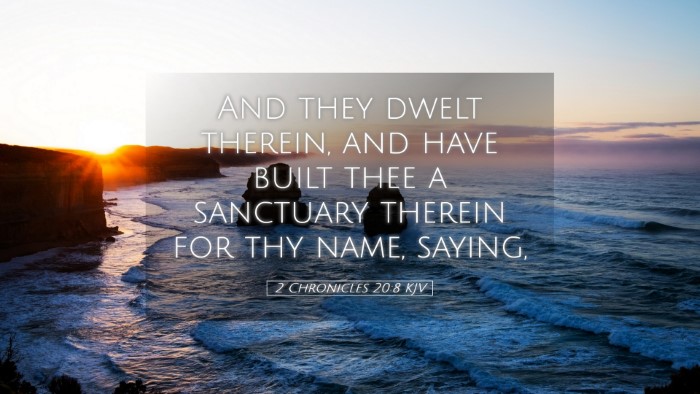Commentary on 2 Chronicles 20:8
Verse: "And they dwelt therein, and have built thee a sanctuary therein for thy name, saying..." (2 Chronicles 20:8)
Contextual Background
This verse occurs within the historical narrative of King Jehoshaphat's reign in Judah, a time marked by challenges but also profound faith. The context of 2 Chronicles 20 describes a pivotal moment where the people of Judah face a great multitude coming against them, and Jehoshaphat leads them in prayer and seeking the Lord.
Interpretative Insights
1. The Significance of the Sanctuary
According to Matthew Henry, the term "sanctuary" here reflects the importance of a divine dwelling place. It symbolizes not only a physical structure but also a spiritual haven where the people can seek God’s presence and guidance. The construction of the sanctuary is indicative of their commitment to God and acknowledgment of His sovereignty.
2. Historical and Theological Implications
Albert Barnes emphasizes the historical significance of the sanctuary. The verse indicates that the descendants of those who conquered the land built a place of worship. It serves as a theological reminder of God's faithfulness, illustrating that the land was not just a material possession but a divine inheritance meant for holy purposes.
3. The Act of Building as a Covenant
In the view of Adam Clarke, the building of a sanctuary is an act of covenant, signifying the people’s recognition of their dependence upon God. It was a declaration that their lives and community were dedicated to glorifying Him. This act parallels modern expressions of faith wherein physical structures are erected for worship and service to God.
Lessons for Today
- Faithfulness in Adversity: Jehoshaphat’s act of seeking God amidst national crisis serves as a model for contemporary believers. It teaches the importance of turning to God when faced with insurmountable challenges.
- Corporate Worship: The gathering of the people to seek God emphasizes the importance of corporate worship and communal faith. The sanctuary was a focal point for communal gatherings dedicated to prayer and worship.
- Building for God’s Glory: The act of building a sanctuary highlights the ongoing need for believers to create spaces dedicated to worship, serving as a testament to God’s provision and presence in their lives.
Application for Ministers and Theologians
For pastors, the themes presented in this verse could be useful for sermon preparation and teaching. It invites reflection upon how communities today are building their own sanctuaries, not just in literal terms but through spiritual and communal practices. Moreover, the communal aspect of faith calls for a greater emphasis on fostering togetherness among congregants.
Theologically, scholars might analyze the implications of a sanctuary within the Old Testament context compared to the New Testament understanding of God’s presence dwelling within believers. This invites discussions regarding the continuity of God’s salvific plan and His leading among His people across different covenants.
Conclusion
2 Chronicles 20:8 encapsulates a moment of divine recognition and commitment by the people of Judah. In building a sanctuary, they reflect their need for God’s presence, guidance, and protection. The insights of public domain commentators provide a multifaceted understanding of the text, encouraging deeper exploration of faith, worship, and community in the life of believers today.


